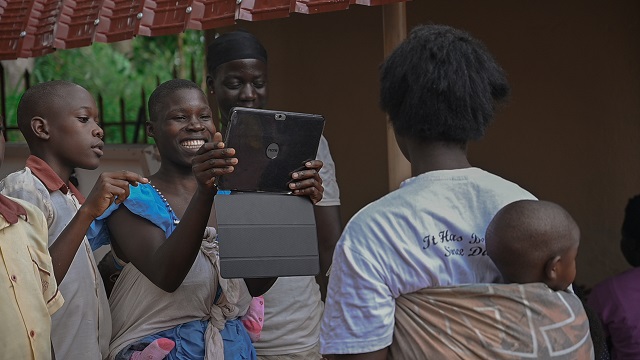Uganda: Digital Technologies Enable Women Take Charge of Their Retirement Prospects
International Women’s Day is a good time to apply a gender lens to all aspects of life – not only to draw attention to the traditional challenges and gaps, but also to mark achievements and to spotlight the opportunities yet to be exploited.
This year’s theme – innovation and technology for gender equality – is an opportunity to reflect on the unexploited potential of ICTs, that could make women realise their dreams and aspire for higher goals.
Access and use of Information and Communication Technologies (ICT), has improved in Uganda, setting the stage for better connectivity, more access to information, greater economic empowerment and a whole host of other advantages. According to UBOS’ National Labour Force Survey of 2022, of Uganda’s estimated 43 million people, at least 69.4% have used ICT – in form of radio, mobile phone or computer.
The report further indicates that out of the estimated 21, 930,000 women in Uganda, 61.7% access internet daily, and 44% percent use their own mobile phones. Women are using these information and communication technologies for a wide range of purposes such as social networking, academic work, business meetings, infrastructure, shopping, job search and entertainment among others. This demonstrates that for many, the opportunities presented by ICTs are right in their palm.
Particularly reflecting on the retirement benefits and pensions sector, many licenced schemes and service providers have taken great strides in technological innovations, making it possible for all members to save and track their funds without geographical, physical or time encumbrances. For example, savers are able to post savings to their schemes using mobile money platforms and internet banking. Retirement Benefits Schemes send monthly updates and statements to their members via email, text message and on specific computer and mobile applications. Even URBRA, the Sector Regulator, has upgraded to a technology-enabled Risk Based Supervision System, to strengthen the supervisory role and limit risks that would otherwise compromise the safety of savers’ funds.
Most importantly, the proliferation of ICT platforms promises to enhance inclusiveness in the Retirement Benefits Sector. Traditionally, women have been disadvantaged in many aspects, limiting their ability to capitalize on available opportunities. The Uganda Bureau of Statistics, in 2017 released a report titled “Women and Men in Uganda: Facts and Figures.”
The report indicated that men engaged more in paid employment, while women spent up to 30 hours a week on unpaid domestic work like colleting firewood, fetching water, taking care of children, the sick and the elderly. Even among those in formal employment, women tend to concentrate in less-paying service work and elementary occupations rather than highly-paid professional work and key positions such as CEOs and senior officials. All such conditions affect women’s retirement planning and retirement benefits.
However, innovations in digital and ICTs now offer women a chance to participate more meaningfully in economic activities that improve their retirement outlook. With better digital literacy, women now have a chance to be more aware of developments and opportunities around them. They are more informed about requirements to start their own businesses; more productive; and able to attain more financial independence. Digital innovations have opened up flexible ways of working. As the Covid19 period demonstrated, it is possible for more women to get involved in tele-working, as more businesses are now moving their operations online. With mobile and internet banking, women have greater control over their money and savings. On the whole, digital innovations give women the opportunity to participate equally in economic life and that is crucial to national development.
Women can take full advantage of these opportunities, not only to improve their current economic wellbeing, but also to enhance their retirement dreams and aspirations. It is therefore important to work towards providing the necessary digital infrastructure, make women more aware of the digital options available, and provide them with the required digital skills… Not only will they contribute more meaningfully to the national economy, they will also take charge of their economic destiny and improve their retirement prospects.
As the Sector Regulator, URBRA remains committed to supporting innovations that enhance retirement saving and improve the protection of retirement benefits.
Read More @allafrica
185 views










